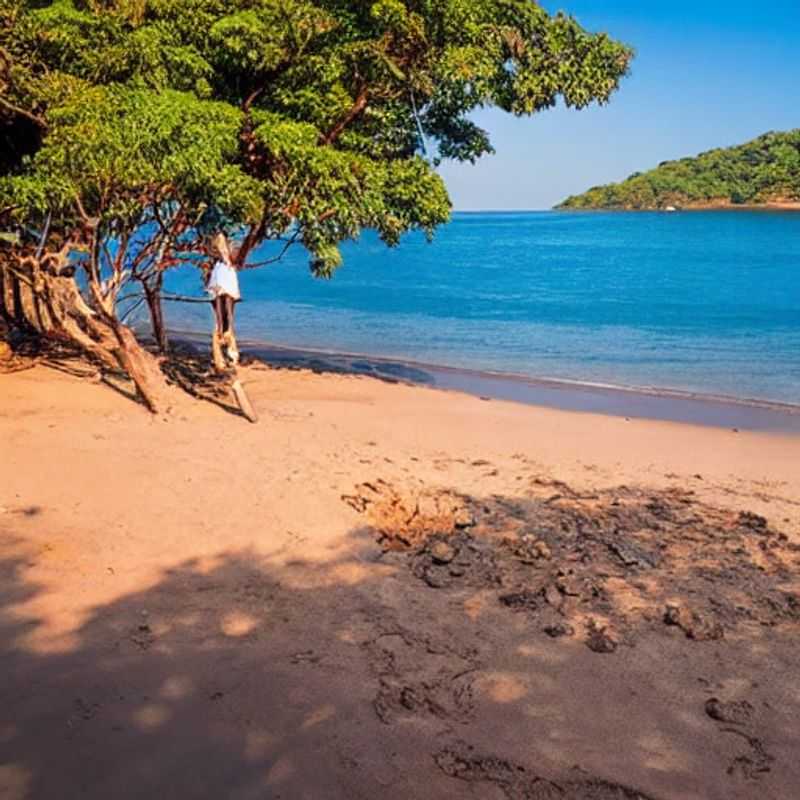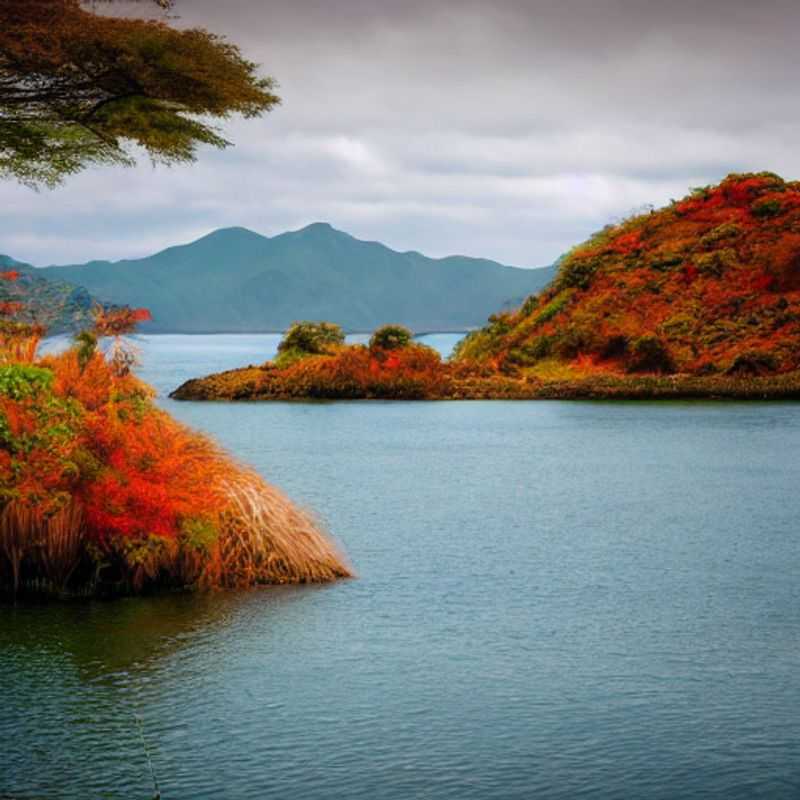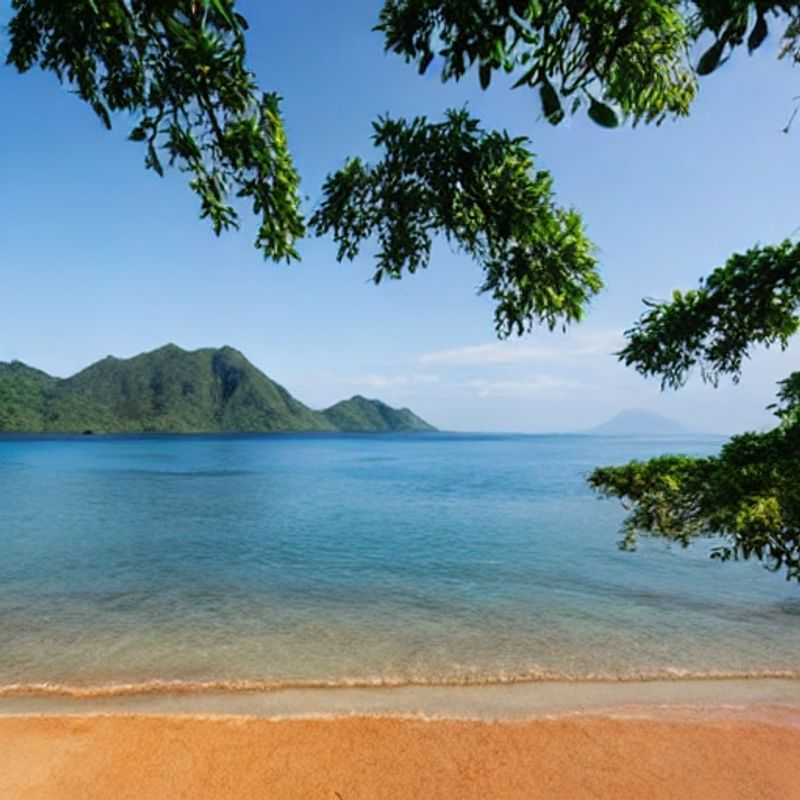Malawi's Luxe Eco-Escape: Top 5 Social Media Spots on Lake Malawi for the Conscious Traveler

Backpacking Lake Malawi 2026: Your Essential Guide
Embark on an unforgettable adventure with our comprehensive backpacking guide to Lake Malawi in 2026. This guide is designed to help you navigate the 'Lake of Stars' on a budget, ensuring you experience its pristine beaches, vibrant culture, and incredible wildlife without breaking the bank. Prepare for an immersive journey filled with breathtaking landscapes and warm Malawian hospitality.
Discover the best routes and transportation options for backpackers, from overland buses to shared taxis, and learn how to travel efficiently and affordably between key destinations like Cape Maclear, Likoma Island, and Nkhata Bay. We'll highlight cost-effective accommodation choices, including budget guesthouses, hostels, and even camping opportunities, so you can rest your head comfortably after a day of exploration.
Dive into the plethora of activities Lake Malawi offers. Whether you're a seasoned diver or a beginner snorkeler, exploring the crystal-clear waters teeming with over 700 species of endemic cichlid fish is an absolute must. Learn about the best spots for snorkeling and diving, and understand any necessary permits or costs. Beyond the water, don't miss out on hiking through nearby national parks, visiting local fishing villages to experience authentic Malawian life, and simply relaxing on the idyllic sandy shores.
Practical tips for a successful trip are paramount. We'll cover essential information on visas, currency exchange, safety precautions, and the best times to visit to avoid the rainy season. Understanding local customs and learning a few basic Chichewa phrases will greatly enhance your interactions with the friendly locals, making your trip even more rewarding. Pack smart, stay hydrated, and be prepared for the unexpected; flexibility is key to a great backpacking experience in Malawi.
This guide emphasizes responsible tourism practices, encouraging you to support local businesses, minimize your environmental impact, and engage respectfully with the communities you visit. By following these tips, you'll not only have an amazing time but also contribute positively to the preservation of Lake Malawi's natural beauty and cultural heritage for future travelers.
Lake Malawi's Luxury Eco-Escape: Top Social Media Spots for the Conscious Traveler (and Stunning Photos!)
Jambo, fellow eco-travelers!

You may also like
Lake Malawi Luxury: Instagrammable Paradise or Scorching Safari? (Peak Season Crowd & Heat Guide)
Chasing the Perfect Shot: Eco-Luxury in Malawi's Lake District (and Avoiding the Tourist Stampede)
Sun, Sand, & Selfies: A Malawi Luxury Guide for the Eco-Conscious Social Media Star (Peak Season Edition)
Malawi's Hidden Gems: Luxury Escapes Beyond the Crowds (and the Heat!)
Beyond the Tourist Trail: Uncovering Malawi's Lake District Secrets (A Luxury Eco-Adventure)
Luxury Lake Malawi: Heat, Hype, & Hidden Havens – A Guide for the Discerning Traveler
Escape the Heat: Luxury Eco-Lodges in Malawi for the Instagram-Obsessed (Peak Season Survival Guide)
Malawi's Magical Lake: Balancing Luxury, Nature, & Social Media (A Peak Season Planner)
The Eco-Tourist's Guide to Luxurious Malawi: Navigating Crowds and Sizzling Temperatures
Sun-Kissed Selfies & Sustainable Stays: A Malawi Luxury Adventure for the Eco-Conscious Traveler
Jambo, fellow adventurers! Your safari guide, M'bwana, is here to illuminate your path to the shimmering shores of Lake Malawi during the fall peak season. Prepare for a blend of breathtaking beauty, bustling crowds, and sun-drenched adventures! This ain't your grandma's knitting circle, folks; expect a vibrant tapestry of sights, sounds, and experiences!
Fall in Malawi (September to November) brings with it the peak tourist season. This means higher crowd levels than the shoulder seasons. Think bustling beaches, lively markets, and a slightly more competitive atmosphere for securing the best spots for sunset viewing. However, it's all part of the fun, right? The sun is high and the heat is on, so pack light clothing, a wide-brimmed hat, and plenty of sunscreen.
The weather, during this period, is typically warm and sunny, with average temperatures hovering in the high 70s and low 80s Fahrenheit (mid 20s to low 30s Celsius). Don't underestimate the heat near the lake, though – hydration is key! Carry water with you constantly.
Lake Malawi boasts a rich culture. The Chewa people, the largest ethnic group, are known for their vibrant masks and intricate wood carvings. You'll likely encounter numerous local musicians playing traditional instruments—the sounds of marimbas and drums often echo through the air. Their music is uplifting and a beautiful soundtrack to your journey. You can also get into the local rhythm and try the local dancing styles.
Food is another adventure! Try the nsima, a staple of Malawian cuisine – a thick porridge made from maize flour. Pair it with some delicious chambo (lake fish), grilled to perfection. Street food is abundant and relatively cheap— expect to spend around $2-$5 per meal. Don’t be afraid to explore, but remember to be mindful of what you choose and where you eat from.
Transportation options are varied: from local minibuses (matatus), which cost around $1-$3 per ride, to more luxurious taxis (negotiate fares beforehand) and boat rides. For a truly immersive experience, consider hiring a bicycle ($5-$10 per day). Boat trips on the lake itself can cost $20-$50 depending on the length and type of tour.
Accommodation varies widely, from budget-friendly guesthouses ($10-$30 per night) to comfortable hotels ($50-$150 per night). Booking in advance is essential, especially during peak season.
Remember, safety is paramount. Stick to well-lit areas at night, be mindful of your belongings, and avoid displaying expensive jewelry. Engage respectfully with local customs and traditions. A bit of preparation goes a long way!
Considering average costs for a 7-day trip: accommodation ($70-$1050), food ($14-$35), transportation ($7-$70), activities ($140-$350), the total cost can range from approximately $221 to $1505 USD, depending on your chosen style of travel. This, of course, is an estimate. You can always save more by selecting less expensive accommodations and other activities.
So, pack your bags, embrace the adventure, and let the magic of Lake Malawi work its wonders. Asante sana, and enjoy your journey!

Lake Malawi Backpacking in 2026: Is It Worth It?
Lake Malawi remains an exceptionally appealing destination for backpackers in 2026, offering a unique blend of stunning natural beauty, vibrant culture, and budget-friendly adventures.
The crystal-clear waters of the lake itself are a major draw, providing opportunities for swimming, snorkeling, and diving amidst diverse aquatic life, including the famous cichlid fish, a UNESCO World Heritage species. Accommodation options are plentiful and cater to all budgets, from rustic beachfront bandas and hostels to more comfortable guesthouses. These often provide communal kitchens and social spaces, perfect for meeting fellow travelers.
Transportation within the region is typically handled by local minibuses, which are economical and offer an authentic cultural experience. While journeys can be long, they are part of the adventure. For those seeking relaxation, the numerous islands and lakeside villages offer tranquil escapes, showcasing traditional Malawian life and friendly hospitality. Be prepared for a slower pace of life and embrace the "Africa time" ethos.
When planning for 2026, it's wise to research visa requirements and any necessary vaccinations well in advance. While generally safe, exercising common sense precautions regarding personal belongings and nighttime travel is always recommended. The cost of living is relatively low, making it a great choice for extended stays. Overall, Lake Malawi promises an unforgettable and highly rewarding backpacking experience.